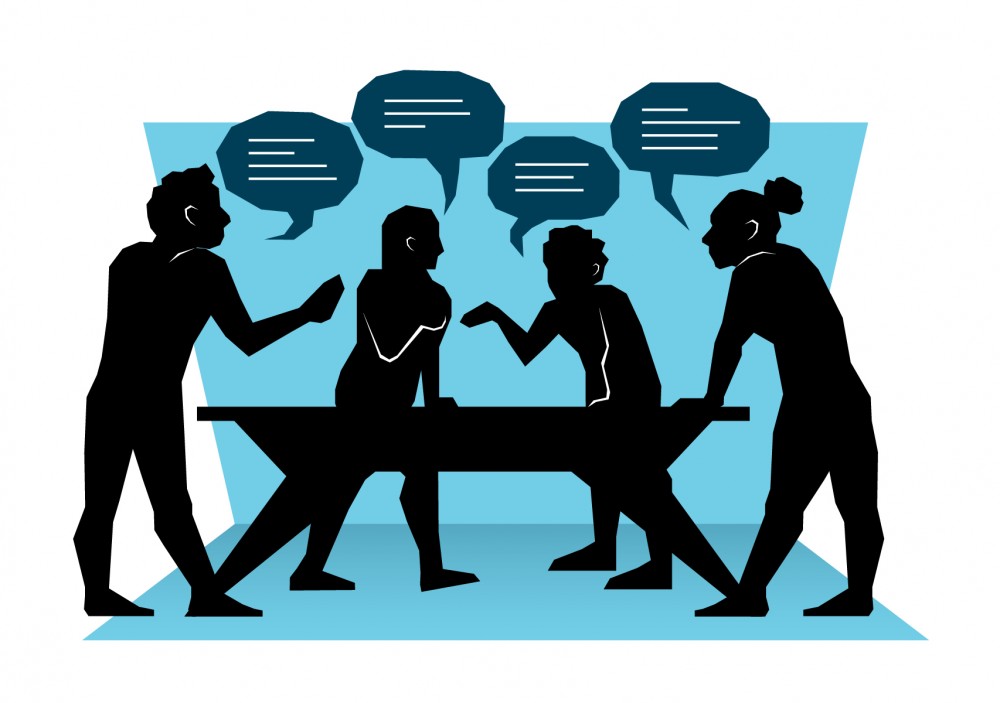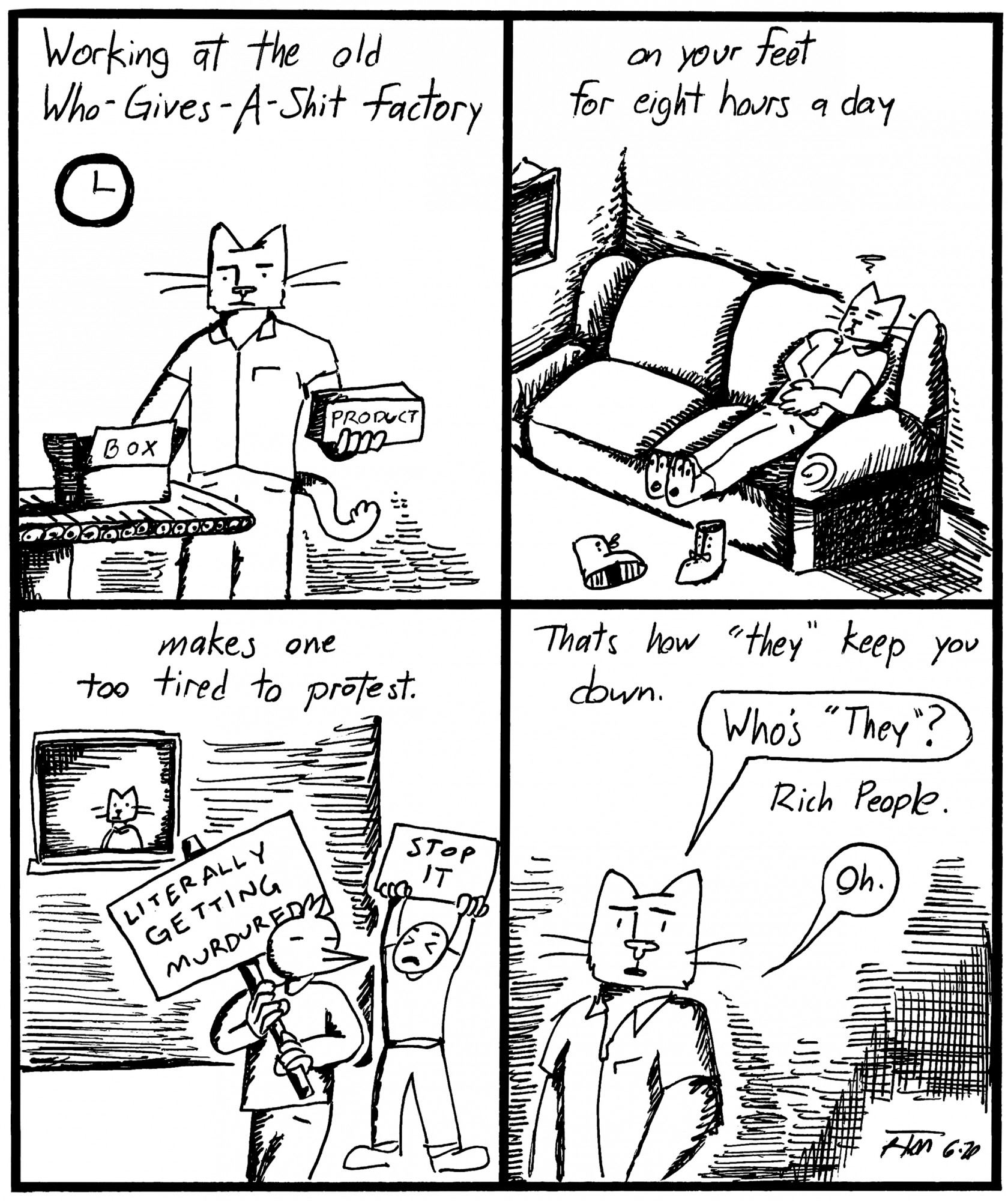In terms of health, it is in the favor of the entire University of Minnesota community that as few people as possible be on campus before a vaccine to COVID-19 has granted the state herd immunity. In an unvaccinated population, and during a global pandemic, further spread is inevitable. Greater time and space opportunities will give the virus more chance to mutate throughout the spread, which ostensibly makes it harder to vaccinate. But there is a chance with a probability of nearly 100% that reconvening anywhere, in a way that produces any single uncontrolled interaction, will cause at least one needless death in any age or health demographic. It’s impossible to govern every single interaction, so that death will happen. Whether that death is of someone affiliated with the University or a connection elsewhere in Minneapolis or Falcon Heights, it’s still a death.
Presuming that no population will be inoculated by a vaccine within the extent of the fall 2020 semester, the University (as well as the entire world) has the responsibility to act with the same caution that brought us into lockdown around March 15 of this year. Every day we witness more Americans throwing caution to the wind because staying inside the same house every day can feel unbearable. Being stuck inside is second only to, of course, not having a house to stay inside every day — or getting the virus and its lifelong debilitating effects or dying.
The University is staring down the barrel of its own cash-strapped recession from a tightened economy everywhere, notably with reduced funding from the state. That’s making tuition the highest revenue source for at least this upcoming fall semester. The elephant in the room, insofar as administration-to-undergraduate emails, is that underclass students will just defect and attend community college instead to save a buck. At the beginning of your life, saving money is always a smart choice in your own favor, but the University is interested in your business. We’re all caught between a rock and a hard place.
Everything would just be better if the U.S. did something a bit like New Zealand, and there could be a lot more certainty in this country as a whole. But we didn’t, and we aren’t, and that trickles down to even small interactions. As time goes by, urgency diminishes, which is a human trait. Theoretically, government should be filling that vacancy to remind us of and ease prioritizing stopping the virus. That’s not happening. Should any more than the bare minimum of students and staff return to campus, which is not a lot of people, conflicting guidance from all levels of government will muddy the waters more over time.
The Minnesota Daily urges students — undergraduate, professional and graduate, as applicable — to stay off campus as much as possible and stay in lockdown until a vaccine is released. Everyone is going to miss school, but it’s best not to be there. Parties and bar-packing in the state of Minnesota are inevitable. Traveling from elsewhere in the state, and country, is also not controlled. Clusters of the virus flared up at bars in Minneapolis, including at the Kollege Klub, and they will again. The human nature to want to see your friends again, in concert with Minnesota governance not totally believing the gravity of the pandemic, is an extra reminder that history repeats itself.
It’s rough on students, especially since American standard operating procedure is for 18-year-olds with no money to assume responsibility for all their finances and face a whole lease if they only have a single in-person class. Hopefully there will be as few instances of that as possible, and students can proactively negotiate with their professors to find an alternative on a case-by-case basis. Plus, the more bodies there are on campus, the more exposure that cleaning staff will face every day.
It’s particularly rough because of the generally extreme hassle of online learning. The responsibility is entirely on students for securing their own reliable internet connection, not to mention devices for viewing, printing, scanning, etc. Teaching and learning in person is most people’s preferred method. But the online switch is the lesser of the two evils to protect vulnerable populations, including essential workers, senior teachers and students and the immunocompromised — though we should do well to remember that the novel coronavirus has proven that even the young and healthy who don’t fall into those groups can be just as vulnerable, too.
Some University affiliates, especially certain undergrads, should get special dispensation to remain on campus. For students whose alternatives to campus housing is homelessness, their home should be in dorms. With too many people, especially with forced air and shared bathrooms, on-campus residence halls can be a ticking time bomb; but distanced properly, and with no more than the necessary occupants, the case is hopeful.
Students can use the summer to pod up. For those who would rather not live with their parents, a lockdown group in a rented house — with plenty of space for people to coexist in the long term — can be a silver lining to a huge coronavirus cloud — and generally a great idea for grad students. Others will fall back in love with their families. Others might see their grades start to go up with remote school. Maybe.
Denying the reality of the pandemic isn’t the play, but making lemonade out of it is.









